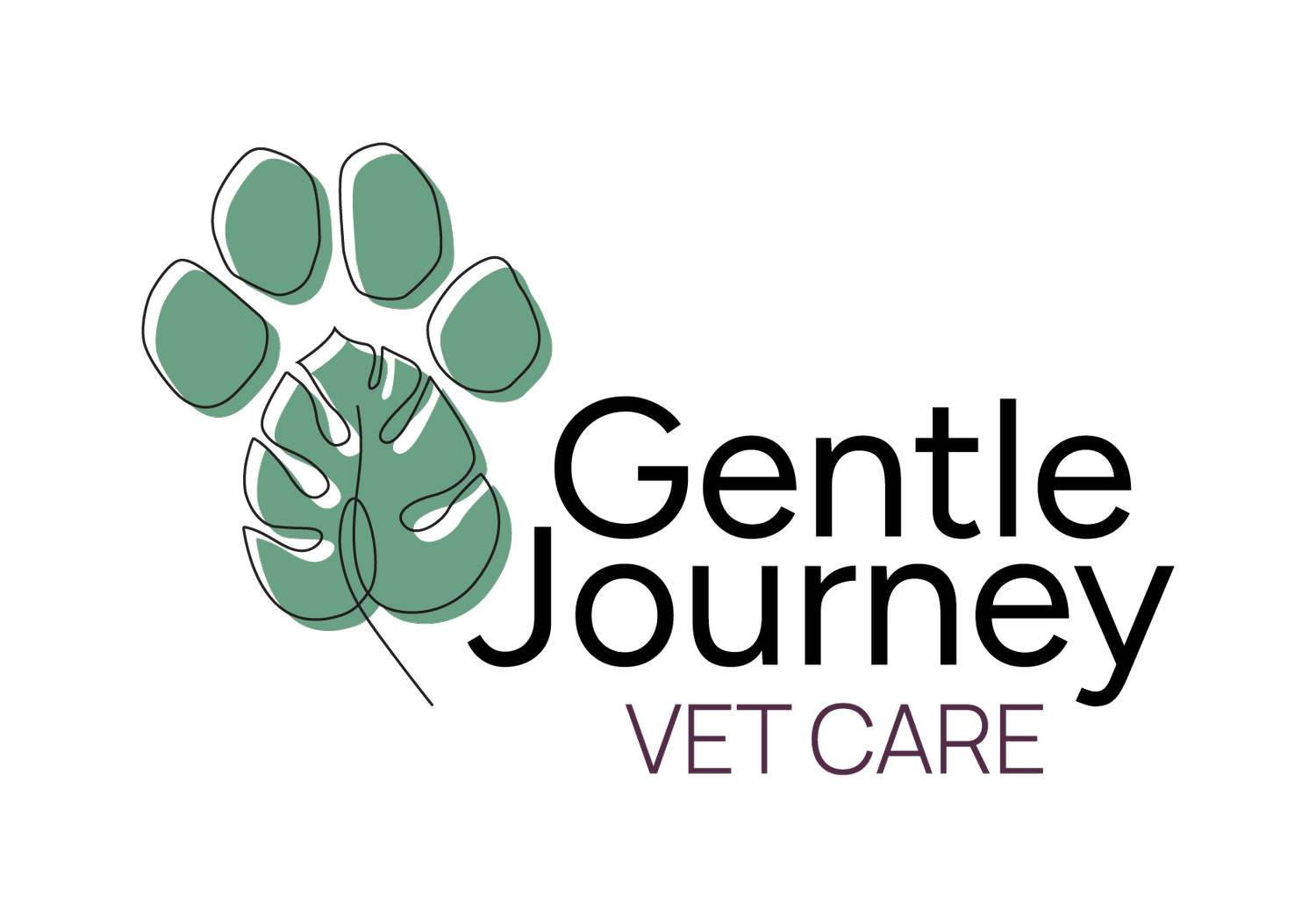What is Palliative Care for Pets?: Understanding Comfort-focused Veterinary Care
Often, the first thing we think of when we hear the words ‘palliative care’ is death. But the truth is, palliative care is about life! Palliative care is the management of a disease, curable or incurable, with a focus on managing pain and other factors negatively impacting quality-of-life.
Palliative care can be a spectrum between a curable short-term disease to a terminal illness requiring end-of-life care. This can also include long-term chronic disease support or hospice care.
End-of-life planning
For many, the first thing that comes to mind when they hear ‘palliative’ is death. And that’s okay! This is because it is most commonly associated with end-of-life care accompanying end-stage chronic diseases, terminal aging, or a cancer diagnosis. Or more familiarly called hospice care.
A big part of palliative care can be end-of-life planning, including long-term and escalating pain management, adaptations of home environments to meet your pet’s needs, re-evaluation of chronic conditions as needed, and even new diagnoses. The main goal is to meet you and your pet wherever you are in your journey, which can change as time goes on.
In the end, palliative care can include a comforting and dignified plan for humane euthanasia that best suits your family and your vision of a peaceful send-off.
Post-operative or short-term care
Although end-of-life care comes to mind, palliative care also includes support through short-term or acute illnesses that require more focused care. This can include care after major surgeries, chemotherapy, or recovery from injury.
Palliative care helps manage side effects and pain, and continues to evolve as a plan in partnership with your veterinary care team to keep up with your pet’s needs.
Long-term or chronic disease
Palliative care is a customized care plan with a focus on pain management. Therefore, it can include chronic painful diseases like intervertebral disc disease (slipped disc) and osteoarthritis, or diseases that require long term reassessment to maintain comfort and minimize side effects like metabolic or endocrine diseases.
Unfortunately, osteoarthritis resulting in immobility is a leading cause of humane euthanasia in dogs, especially large and giant breed dogs. For many of these dogs, palliative care can prolong quality of life. A palliative care team can work with your primary veterinarian, as well as, veterinary specialists, physical therapy team, and other care team members like your pet’s groomer, pet sitter, and/or trainer.
How do you know if palliative care is right for you and your pet?
Palliative care can be a good fit for your pet if you worry that they are experiencing pain or discomfort, for any reason. It can be in addition to or in lieu of care by a primary veterinarian in a hospital or clinic. Most commonly, a brick-and-mortar practice is needed for advanced testing, emergency care, or hospitalization. However, quite a lot can be done in a lower-stress home setting, including examinations, lab work, and tumor sampling.
Goals for palliative care differ for each family and pet. It can include any or all of the following:
primary care
palliative care
emergency or urgent care
grooming
physical and hydrotherapies
laser and acupuncture therapy
pharmaceuticals
adjunctive therapies, including supplements and pEMF therapy
and more!
A palliative care plan often requires a bit or trail and error, letting you try certain therapies and medications to see if they are a good fit for you and your pet. It is up to you to decide what your pet’s comfort looks like as they deal with their injury or illness.
It is important to know that palliative care can also be intermittent! Your pet’s disease may be stable for some time, the current plan is on autopilot, or they recover from their injury or illness. The care plan can be re-evaluated and updated at any time.
Key Facts about Palliative Care
Palliative care is dynamic and changes depending on what you and your pet need at the time. It allows us to choose the best path for your pet’s health and create a plan and team to suit your needs as caregivers.
Gentle Journey Vet Care specializes in palliative care and working with pet guardians to keep their pet comfortable and provide care in the comfort of their home. Alternatively, we can join your care team virtually. We start by reviewing your pet’s medical history and health and comfort status, then create a customized care plan with you. All initial consultations are virtual.
If you’re interested in palliative care and how it can benefit you and your pet, please schedule a consultation with us today.


